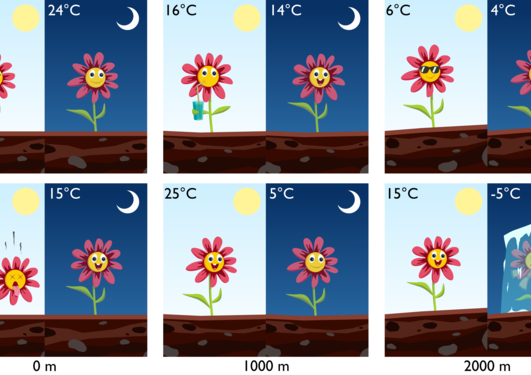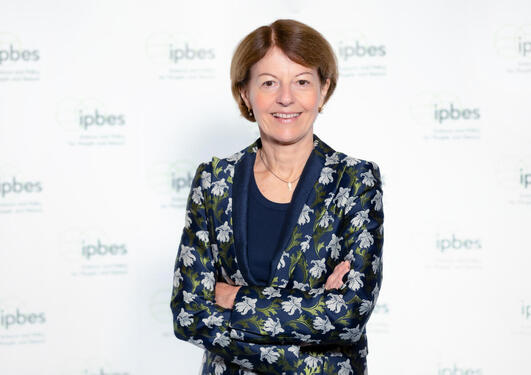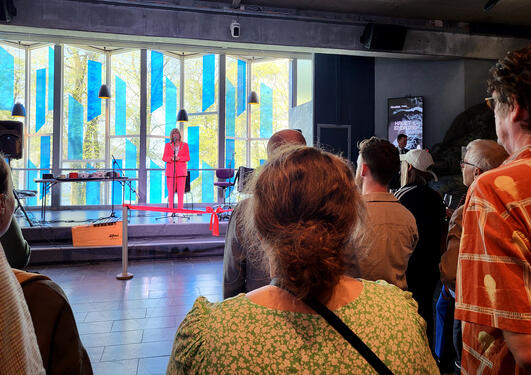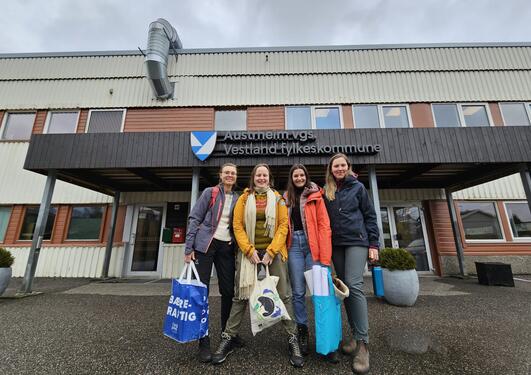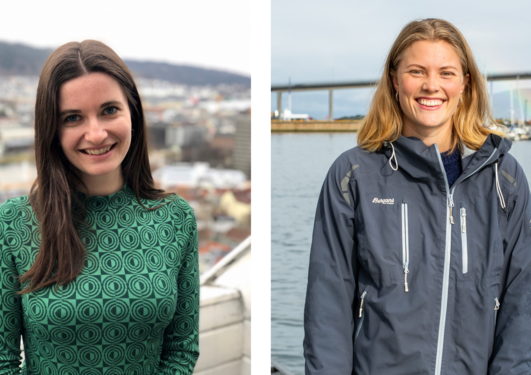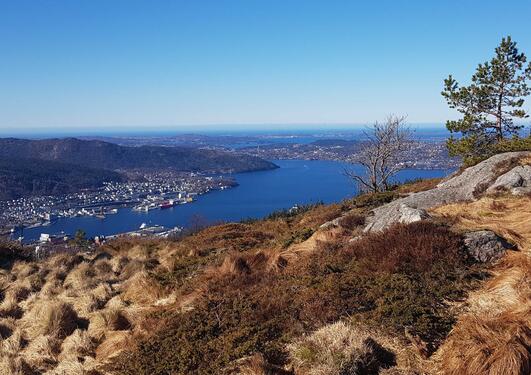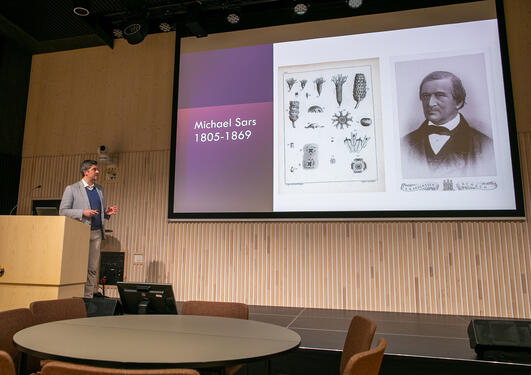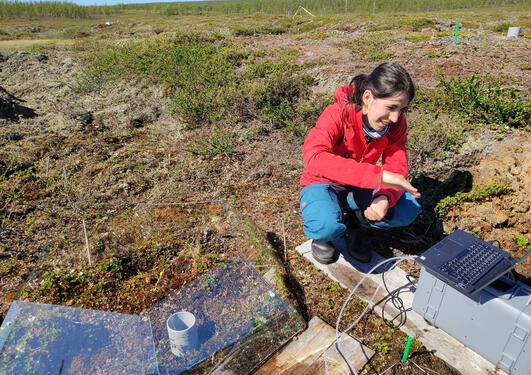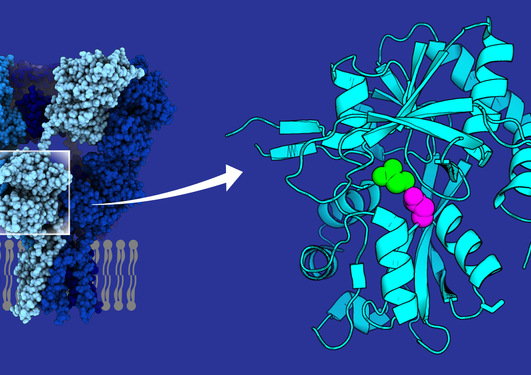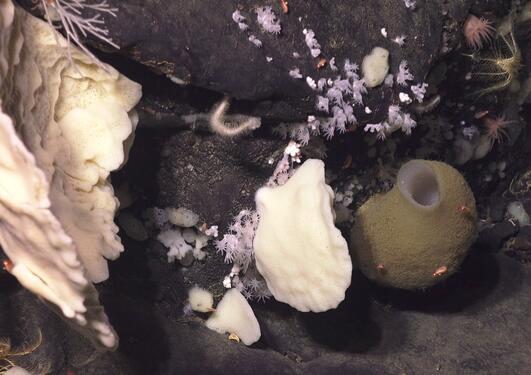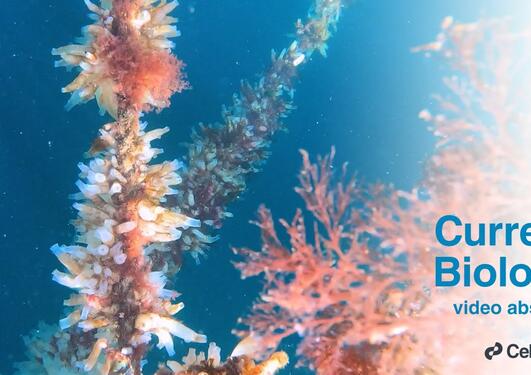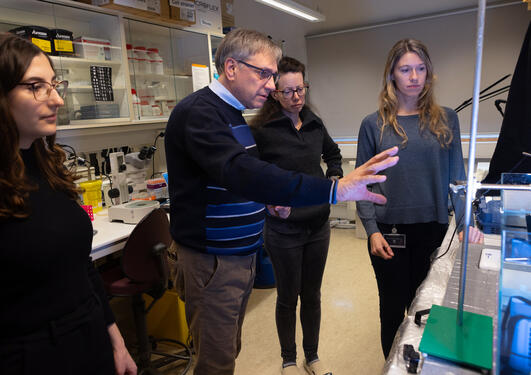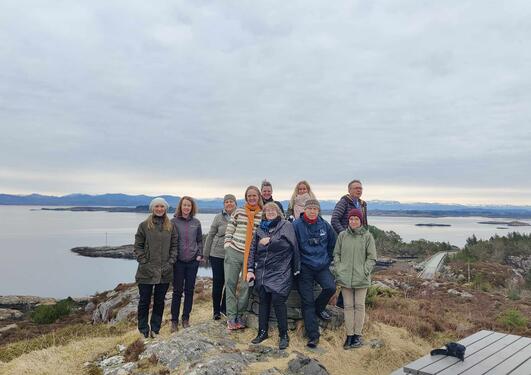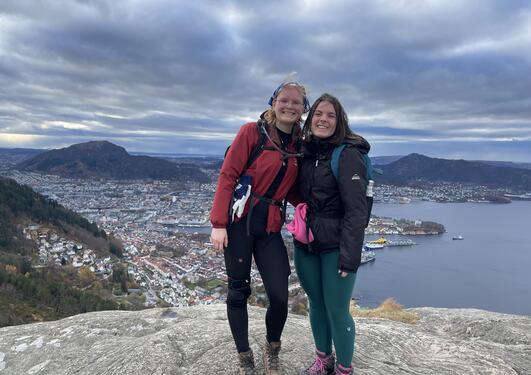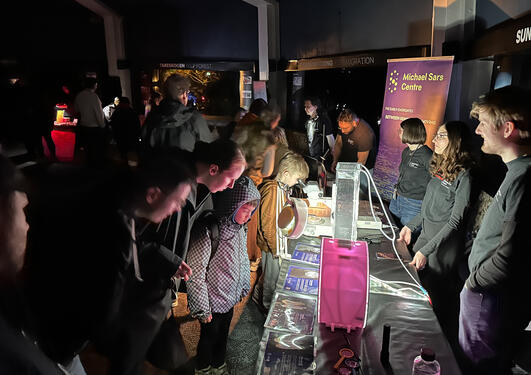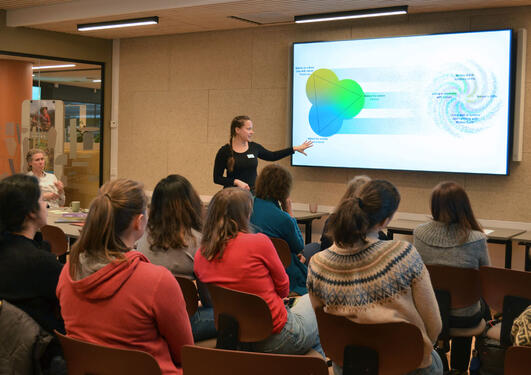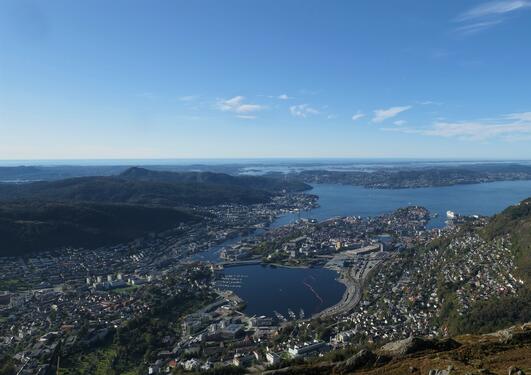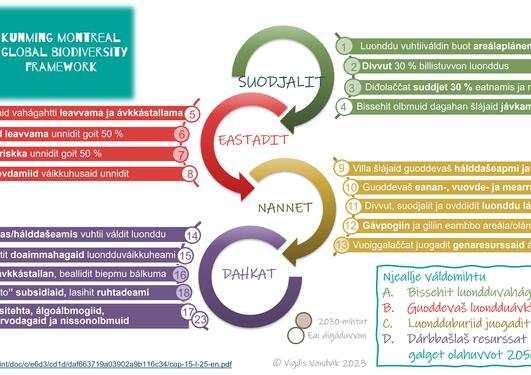News archive for Department of Biological Sciences (BIO)
By studying the distribution range of plants in mountains globally, researchers at the University of Bergen have tested a new hypothesis that may change our understanding of how plants respond to temperature variation.
The Executive Secretary of the Intergovernmental panel on Biodiversity and Ecosystem Services (IPBES) Dr. Anne Larigauderie, will receive an Honorary Doctorate at the University of Bergen on May 24th. CeSAM are pleased and honored to have assisted UiB with the scientific program around this visit. Anne will be present in Bergen from May 22nd – 25th, and there will be several opportunities to hear... Read more
Bergen Aquarium hosted an inaugural event for their latest exhibit, "Havet i endring" or "The Changing Ocean." The new installation features a 1200L aquarium showcasing jellyfish generously gifted by the Centre.
This spring, the UNESCO Chair group has been working with collecting positive future visions for sustainable nature, land-use and cultural landscapes. Most recently, workshops were held with students from two different high schools in Nordhordland biosphere reserve.
We are excited to welcome two new PhD students in CeSAM; Janne Thomsen and Marte Klemetsdal will both be working closely within the CeSAM community.
The University of Bergen's communication section has an overview of local experts on various topic. We have now included CeSAM researchers in these lists, especially under the heading 'Nature deal, IPBES (naturpanelet), Nature Crisis and Natural Resources'.
Amidst the festivities of One Ocean Week, researchers from the Michael Sars Centre embraced the opportunity to engage with the public on Family Day and participate in the Ocean Outlook conference.
Tundra ecosystems hold vast amounts of carbon, which is projected to be released into the atmosphere under climate warming. Researchers from the department of Biological Sciences contributed to this important and alarming new paper in Nature, led by researchers from Umeå University in Sweden.
Researchers from the Lynagh Group reveal how minor amino acid variations in ionotropic glutamate receptors (iGluRs) can lead to major functional changes across animal phyla.
Deep sea research is a gateway to unlocking mysteries both within our planet and beyond, offering insights that can have profound implications for science, industry, and our understanding of life in the universe.
A new video abstract for Current Biology explores how specific chemical cues control the settlement and metamorphosis of Ciona larvae. Watch the film to hear researchers from the Chatzigeorgiou Group discuss their findings.
Professor Giovanni Zambon and researcher Dr. Valentina Zaffaroni Caorsi from the University of Milan-Bicocca recently visited the Centre to conduct preliminary experiments as part of the pan-European project DeuteroNoise.
As the CULTIVATE project has entered its final year, it was time for the project's third in-person meeting. After visiting the biosphere reserves Trebon Basin and West-Estonian Archipelago previous years, members of the UNESCO Chair Group and the biosphere coordinators from Nordhordland UNESCO Biosphere Reserve were happy to finally greet our colleagues in Western Norway.
After six months at the Centre, research interns Catharina Kolner and Célestine Allombert-Blaise are off to the next steps of their path as young scientists. With their dedication and enthusiasm, they have made invaluable contributions to their respective research projects.
Researchers from the Michael Sars Centre engaged visitors with interactive exhibits and offered insights into marine life fostering scientific curiosity and education among guests of all ages.
As the days are slowly getting longer, we take a moment to reflect on our achievements from last year.
Klima- og miljødepartementet leder arbeidet med to stortingsmeldinger som skal legges fra ila. 2024; en om naturmangfold for å følge opp den internasjonale naturavtalen, og en om klima fram mot 2035 på veien mot lavutslippssamfunnet i 2050. UNESCO Chair Inger Måren har bidratt med innspill til regjeringen på vegne av CeSAM, Nordhordland UNESCO biosfæreområde, og den norske MAB-komiteen.
Our cheat sheet to the Kunming-Montréal Global Biodiversity Framework is getting widely shared, which is great news. To celebrate Sámi National day, it is now also available in Sámi.
Pages
- 2025
- 2024
- 2023
- 2022
- 2021
- 2020
- 2019
- 2018
- 2017
- 2016
- 2015
- 2014
- 2013
- 2012
- 2011
- 2010
- 2009
